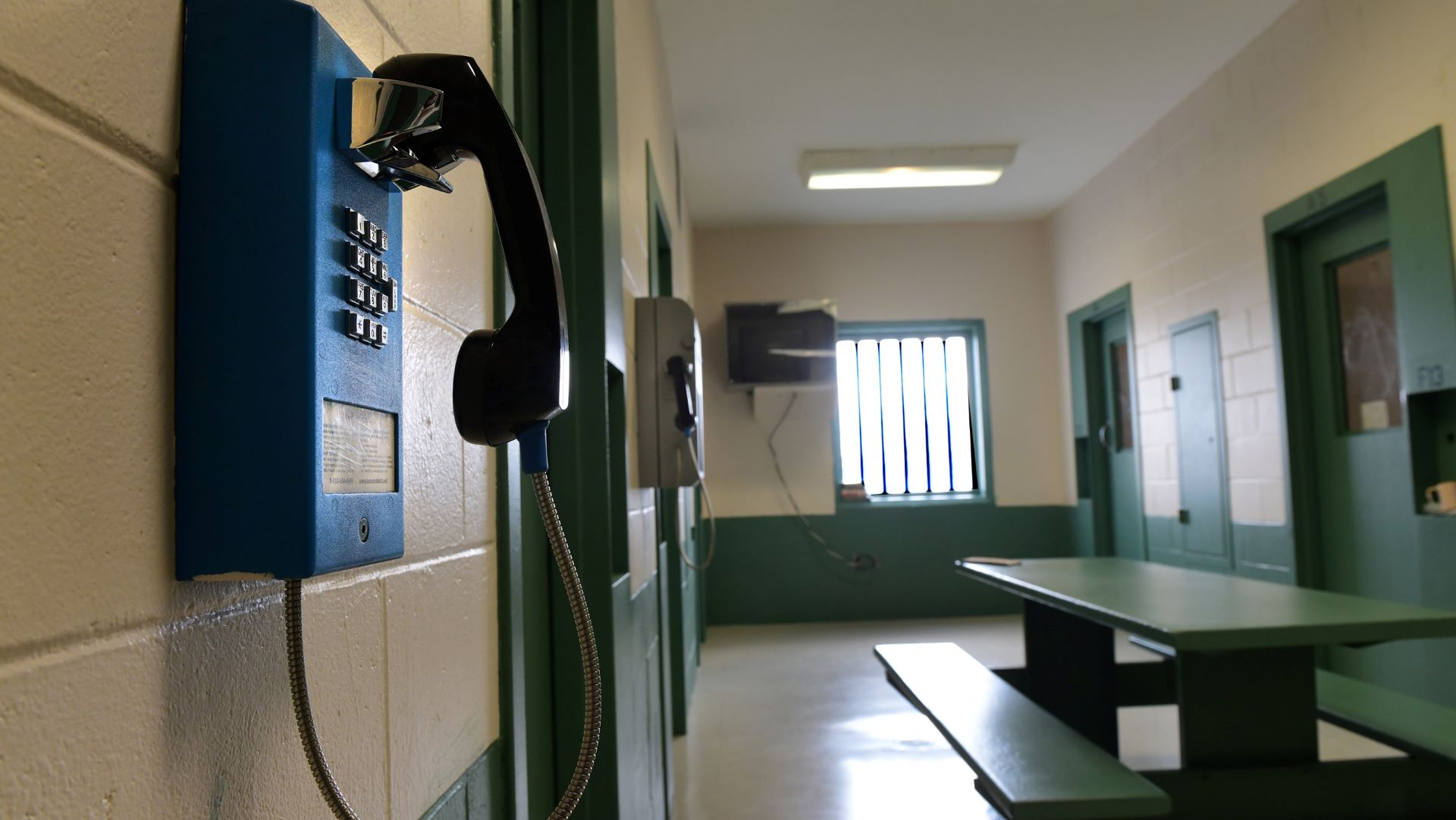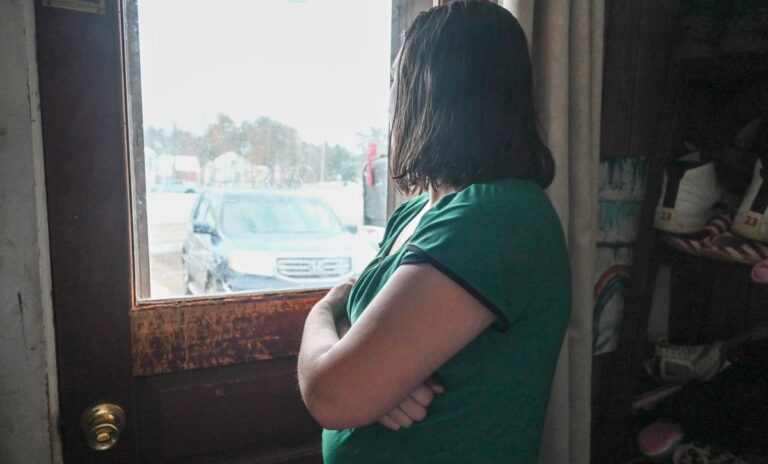Maine lawmakers are considering changes aimed at better protecting prisoners’ rights to private attorney-client communications in jails and prisons — including one proposal that would eliminate charges for phone calls that jailed defendants make to their lawyers.
Two separate bills slated for review by the state’s Judiciary Committee this year address how jailed defendants can contact their lawyers and their expectation of privacy during those conversations. People in jail have a constitutional right to privately consult a lawyer to prepare a defense, but recent disclosures by The Maine Monitor found numerous instances where that right was endangered.
Jails in Androscoggin, Aroostook, Franklin, Kennebec, Penobscot and York counties recorded nearly 1,000 phone calls that jailed defendants made to their lawyers between June 2019 and May 2020, an investigation by the Monitor found. Some confidential recordings were later shared with police or prosecutors who listened to parts of the recordings, records showed.
RELATED: Jailed defendants expected private attorney calls. They didn’t always get them.
Rep. Tavis Hasenfus (D-Readfield) is sponsoring one of the bills that would require jails to make phone calls to lawyers free and explicitly protected by attorney-client privilege.
“To have the state eavesdropping and listening in just seemed to be so counter to our system of what it means to have attorney-client relationships that I’m surprised it happened in the first place,” said Hasenfus. “And my reaction is that we need to find a way so it doesn’t happen again, because you can’t have an effective conversation with a client if you think somebody else is listening in and may use that in a number of ways.”
A second bill is also being considered. In response to the Monitor’s reporting, state lawmakers last year formed a study group of defense lawyers, law enforcement, prosecutors, victim advocates and civil rights attorneys who returned a report with 14 recommended changes to state law.
The study group was not unanimous in its recommendations.
Among the proposed changes in the second bill are improving the jails’ registration of attorney phone numbers, writing procedures for state agencies to report attorney-client recordings if they are found, and adding training for law enforcement. The study group also recommended that the state plan how confidential legal materials are stored at jails, and prisoners’ ability to review audio-visual evidence.
Lawmakers unanimously agreed to have most of the recommendations drafted as a bill this year.
Advocates for civil and prisoner rights said they were concerned whether the study group’s bill contains enough incentives for jail officials and prosecutors to follow the new standards, if the bills become law.
“We’re dealing in a criminal legal system where the prosecutors and police talk a lot about having to have consequences for people’s actions and there should be consequences if you break the law. What we found throughout discussing this issue is there’s a real reluctance for the people who are enforcing the law to have any consequences if they don’t follow the law,” said Meagan Sway, policy director of the ACLU of Maine and a study group member.
A possible incentive is the study group’s proposal that prevents “any person who accesses, monitors, records, copies, transmits or receives” recordings of attorney-client calls from participating in an investigation or trial, if the lawyer can show they provided their phone number to the jail. The ACLU opposes criminalizing the listening to confidential recordings, which was part of a bill proposed last year.
The study group’s bill places the Maine Department of Corrections in charge of setting the standards for confidential phone calls at jails. Any standards about the privacy of attorney-client phone calls should be mandatory, so that counties cannot opt out, said Joseph Jackson, executive director of the Maine Prisoner Advocacy Coalition that works with people in jails and prison.
Jackson said there is little oversight of jails and prisoners have no uniform expectation of rights at county jails.
“I feel like the Department (of Corrections) needs to have more authority. I think there needs to be a centralized place that governs county jails and policies or practices therein. The problem is the last time we tried to do that, the jails were firmly against it,” Jackson said.
Bill proposes making calls to lawyers free
As the state investigates recordings of attorney calls, Hasenfus said it’s also a good time to study other potential barriers, such as costs, that keep jailed defendants from contacting their lawyers.
It can cost a prisoner $3.15 to make a 15 minute call. That doesn’t include potential connection fees or rates above 21 cents per minute that some jails charge prisoners.
By comparison, a 15 minute call through a typical phone plan that charges 3 cents per minute would cost 45 cents.
“Having money on a phone account shouldn’t be a barrier to talking with your attorney and it shouldn’t be an inconvenience either,” said Hasenfus, who is a lawyer.
He is sponsoring a bill that would require Maine county jails to allow people in jail during normal business hours to call lawyers for free and have those calls protected by the attorney-client privilege. The jails would also be responsible for drafting, publishing and implementing guidelines to implement the new rule.
Hasenfus’ proposal partially stems from his own experience working with incarcerated clients through the Maine Commission on Indigent Legal Services, or MCILS, which provides legal services at the state’s expense to adults charged with crimes who cannot afford their own lawyer. Hasenfus said he used to receive collect calls from the jails of people he was assigned by the court to represent.
News reports about police and prosecutors listening to recordings of some attorney-client phone calls through the jails was another impetus for submitting the bill, he said.
RELATED: A Maine jail recorded hundreds of an attorney’s calls. He wants to know why.
Hasenfus said he plans to seek opinions from correctional officers or county jail officials about the proposal’s feasibility.
The Maine Sheriffs Association did not respond to the Monitor’s emailed request for comment about the bills.
Jackson described the cost of making a jail call as exorbitant, especially for lower-income defendants.
“Most of the people in county jails haven’t even been convicted of a crime yet, so their stays in those county jails are due to the fact that they can’t afford bail. Now what we’re beginning to understand is this is amongst the poorest folks in our community, and if they can’t afford bail, how are they going to afford these phone calls to stay in contact with family and with attorneys?” Jackson said.
Maine follows national trend to lower costs
States and cities across the country have passed legislation in recent years to lower or eliminate the cost for prisoners to make calls. Connecticut and California have made calls free for some prisoners.
President Joe Biden on Jan. 5 signed the Martha Wright-Reed Just and Reasonable Communications Act of 2022, a bill passed by Congress that allows the Federal Communications Commission (FCC) to set just and reasonable charges for inmate phone and video calls. Sen. Angus King of Maine co-sponsored the legislation.
Last year, Maine lawmakers capped the price per minute that local jails could charge prisoners to make an in-state phone call, the Monitor reported. But the law only applies to rates negotiated between counties and their phone vendors after October 2022.
Maine’s county jails contract with one of the two private telecom companies that specialize in prison phone systems — Securus Technologies and GTL.
The jails earn a commission from the revenue earned from prisoners’ phone calls. The profit cannot be used to pay for the operation of the jails and must be placed in an “Inmate Benefit Fund” used to pay for newspaper subscriptions, cable, gym equipment, seasonally appropriate clothing at release, and to help indigent prisoners.
Counties have sometimes sat on hundreds of thousands of unspent dollars in those accounts, the Monitor found.
The Maine Department of Corrections has negotiated a 9-cents per minute call rate for people serving sentences at state prisons with its phone vendor. The cost of calls in jails is often much higher.
Making some calls in jail free may be part of solving the puzzle in Maine, Sway said.
“Access both to attorneys and the outside world when one is incarcerated are so important to people’s rights and their humanity, which I don’t know that we often talk about. To be cut off. To be unable to afford to communicate with the outside world really does isolate and keep people away from their community,” Sway said.
Samantha Hogan covers the criminal justice for The Maine Monitor. Reach her by email with other story ideas: [Show Email].








